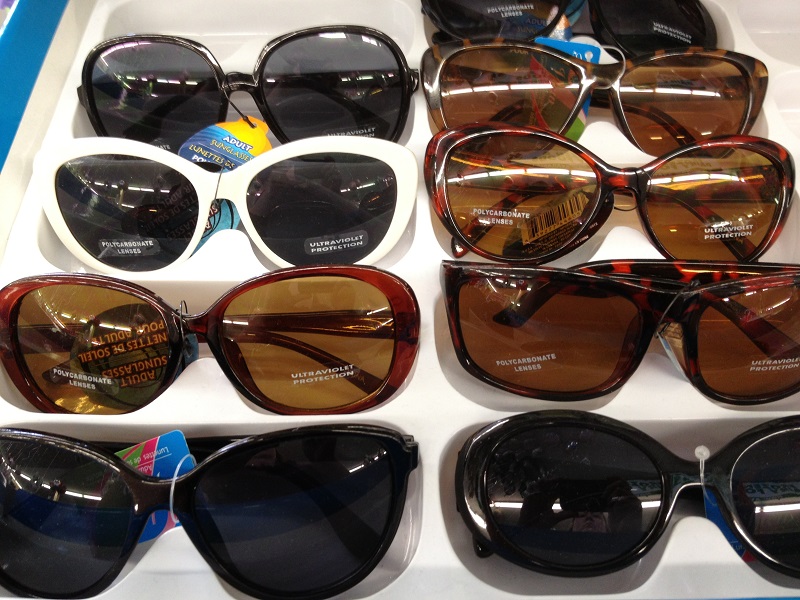You’re cruising the aisles at the dollar store, and spot the cutest little pair of cat’s eye sunglasses. OK, they’re made of the cheapest plastic known to man, but the price is right and the lenses are black as night, so they’ll work for your trip to the beach, right? Not so fast. Those cheapo shades could seriously put your eyes and health at risk.

Contrary to how it might seem, the ultra-dark lenses you often find on super-inexpensive pairs, are likely doing more harm than good when it comes to keeping damaging sunlight out of your eyes. “When you’re wearing dark sunglasses, your pupils can dilate—instead constricting as they normally do in sunlight—and thus let in more UV light,” Joann Kang, M.D., assistant professor in the department of opthamology and visual sciences at the Albert Einstein College of Medicine/Montefiore Medical Center in New York City, tells SELF. The potential damage is sobering: “UV light can cause abnormal growths on the surface of the eye called pinguecula and pterygia,” Kang explains. “Sunlight can also contribute to serious eye conditions including cataracts, macular degeneration and ocular and eyelid cancers.”
So what should you look for when shopping for a safe pair of sunglasses? For starters, ALWAYS choose shades that have 100 percent UVA/UVB protection. You should be able to see this info clearly labeled with a sticker or tag. The words “UV absorption up to 400 nm” should be there, too—that means you’re fully covered. Also look for a line that states the sunglasses block 75-90 percent of visible light, to doubly ensure total protection.

What about if you wear contacts that already offer UV protection? Total UV-blocking sunglasses are still essential, as your lenses may not offer enough protection on their own to do the trick.
Although you’ll want to skip that dirt-cheap dollar store pair, know that lighter-lensed sunglasses with full UV protection don’t have to break the bank. You can find many stylish pairs at all price points—no need to buy pricey designer frames unless you want to. Make sure the pair you like best fit nice and snug; it should be comfy on your ears, and never slip down your nose. It’s also important to avoid glasses that gap a lot across the top and at the edges, which will let light in around the lenses. Kang says wraparounds are best at preventing UV light from entering your eyes at the sides, but if that’s not your style, try to find a look you like that fits close to your face to minimize space where light can creep in.
